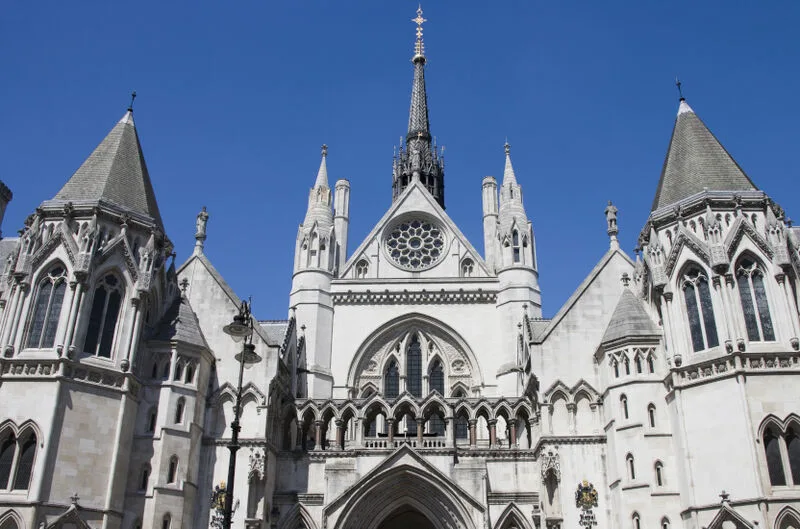For many years, parties to proceedings in the Family Courts could often safely expect that their case would be heard in private and if the judgment in their case was published, it would be anonymised. Whilst duly accredited media representatives and legal bloggers are able to attend private hearings pursuant to rule 27.11(2)(f) and (ff) of the Family Procedure Rules 2010 (“FPR“), this typically did not happen as there are strict rules regarding the reporting of private hearings.
Section 12 of the Administration of Justice Act (“AJA“) 1960 provides that publication of information relating to proceedings before any Court sitting in private shall not of itself be contempt of court except:
- Where the proceedings (i) relate to the exercise of the inherent jurisdiction of the High Court with respect to minors, (ii) are brought under the Children Act 1989 or the Adoption and Children Act 2002, or (iii) otherwise relate wholly or mainly to the maintenance or upbringing of a minor; or
- Where the Court (having power to do so) expressly prohibits the publication of all information relating to the proceedings or of information of the description which is published.
Section 97(2) of the Children Act (“CA“) 1989 also provides for children’s privacy in certain proceedings.
However, there is a growing push to increase transparency in such proceedings. In October 2021, Sir Andrew McFarlane, President of the Family Division, published his report ‘Confidence and Confidentiality: Transparency in the Family Courts‘[1]. The President concluded at paragraph 35 of his report as follows:
“My overall conclusion is that the time has come for accredited media representatives and legal bloggers to be able, not only to attend and observe Family Court hearings, but also to report publicly on what they see and hear. Reporting must be subject to very clear rules to maintain both the anonymity of the children and family members who are before the court, and confidentiality with respect to intimate details of their private lives. Openness and confidentiality are not irreconcilable and each is achievable. The aim is to enhance public confidence significantly, whilst at the same time firmly protecting continued confidentiality.”
The President called for judges to publish at least 10% of all their judgments. Whilst this might seem a small figure, this will be a significant increase to the current rates of publication. The President will press for the establishment of an Anonymisation Unit within HM Courts and Tribunal Services to assist with the anonymisation of judgments for publication.
Children Proceedings
A pilot scheme, the Reporting Pilot[2], was announced to begin on 30 January 2023 in respect of public law children cases, and will be extended to private law children cases. The Family Courts in Leeds, Carlisle and Cardiff shall be involved in a 12-month pilot scheme. The aim is to allow accredited journalists and legal bloggers to report on what they see and hear in court (the ‘transparency principle’), but any reporting will be subject to protecting the anonymity of any children (the ‘anonymity principle’). The Court may depart from the transparency principle.
The Court will consider making a Transparency Order (a standard form order which can be modified as appropriate) but retains a discretion to order that the case should not be reported. The standard Transparency Order will remain in place until any relevant child turns 18 and restricts the reporting of identifying details, such as the names and dates of birth of any subject children, the names of the parties, or the name of any parent or family member who is mentioned in the case, or whose name may lead to the children being identified. However, local authorities, NHS Trusts, Court appointed experts and legal representatives (amongst others) may be named.
Under the pilot scheme, pilot reporters are entitled to be provided with copies of, see and quote from case outlines, skeleton arguments, summaries, position statements, threshold documents and chronologies.
Financial Remedy Proceedings
The Reporting Pilot shall not apply to financial remedy proceedings. However, Mr Justice Mostyn and His Honour Judge Hess have proposed a standard reporting permission order (“RPO“) to enhance the transparency of financial remedy proceedings in the Financial Remedies Court.
The default position under rules 27.10 and 27.11 of the FPR shall remain, so financial remedy hearings shall be heard in private, with journalists and legal bloggers being entitled to attend.
The privacy of financial remedy proceedings had been protected by three restrictions on the ability to report:
- Children are generally not named, and their schools are not identified;
- Financial information disclosed by the parties under compulsion is protected and may not be referred to in a published report without leave of the Court; and
- Journalists and legal bloggers cannot see any documents without leave of the Court. Mostyn J and HHJ Hess have explained that without sight of these documents, the right to attend and report on the hearing is “largely rendered meaningless” as the media representative and/or legal blogger would not have a sufficient understanding of the case.
However, the proposed RPO would allow journalists and legal bloggers to have sight of documents with key protected financial information, subject to strict conditions so that the journalist or legal blogger is supplied only with the documents necessary to understand the case, those documents are not to be “bandied about” and that they are destroyed, at the latest, six months after the case is over.
Under the wording of the proposed RPO, journalists and legal bloggers could publish parties’ names and photographs of the parties. They may also report a description of the factual, evidential or legal issues in the proceedings including the open proposals made by the parties. Journalists and legal bloggers may quote from witness statements, replies to questionnaire, voluntary disclosure, position statements, and witnesses’ oral evidence.
Furthermore, recent case law, such as BT v CU [2021] EWFC 87, indicates that going forward, parties should no longer expect anonymisation of judgments. In this case, Mostyn J said “reliance on the convention of anonymisation of financial remedy judgments should now be abandoned… my default position from now on will be to publish financial remedy judgments in full without anonymisation, save that any children will continue to be granted anonymity. Derogation from this principle will need to be distinctly justified by reference to specific facts, rather than by reliance on generalisations.”
Going Forward
Campaigners for greater transparency will be pleased by the push for greater transparency. They would argue that it is in the public interest for greater openness surrounding the decisions made in the Family Court, often made at the discretion of the judges, which go to important societal values, such as a fair and proper outcome in financial remedy proceedings, the welfare of children and whether the State should remove a child into care. One may hope that this greater transparency will enable greater public awareness, confidence and education regarding these issues and debunk common myths.
However, there is a great deal of concern regarding the implications of this greater transparency. Family law proceedings are, by their very nature, incredibly personal to the parties and their children, and require full and frank explanations of private details. Many parties will not want any of these details reported in the press for public consumption by their friends, neighbours, colleagues or strangers.
There is also a concern that this push for transparency might inadvertently cause a two-tier system of dispute resolution. Some parties may be more reluctant to use the court system for fear of public scrutiny and so may seek to resolve their issues by way of private Financial Dispute Resolution hearing or arbitration; something only available to those willing to pay for it. Due to court backlogs, there may be the added advantage that these disputes can be resolved more quickly through the alternative methods. However, if the costs of these private hearings are prohibitive to lower income families, there is a risk that privacy and relative speed will be the preserve of the wealthiest.
Parties must now be aware that they cannot expect privacy and anonymity to the same extent as in the past. However, it remains to be seen what the effect of this push for greater transparency will be on parties and proceedings in future.
[1] https://www.judiciary.uk/wp-content/uploads/2021/10/Confidence-and-Confidentiality-Transparency-in-the-Family-Courts-final.pdf
[2] https://www.judiciary.uk/courts-and-tribunals/family-law-courts/reporting-pilot/





